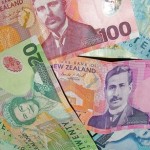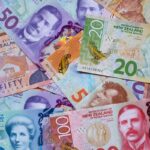Japanese yen advanced against most of its major peers during the start of the week, as Japans ruling party failed to win an independent majority in upper-house elections during the weekend.
USD/JPY fell to a session low at 99.60 at 0:10 GMT, after which consolidation followed at 99.80. At 6:32 GMT the cross was trading at 100.10, down by 0.26% for the day. Support was likely to be found at July 18th low, 99.45, while resistance was to be met at July 8th high, 101.52.
Shinzo Abe’s Liberal Democratic Party (LDP) and its New Komeito ally now have 135 of the 242-seat upper house, according to estimates by state broadcaster NHK. It is the first time since 2007 that Japan will operate without a split parliament. Having gained control of the upper house of parliament Abe could be able to continue pushing through a series of structural reforms, striving at economic growth stimulation and struggle with deflation. As China increasingly challenging Japan’s administration of the Senkaku Islands, the LDP has suggested buying first-strike weapons such as cruise missiles. The party also has proposed amending the pacifist constitution to legitimize Japan’s maintenance of armed forces, Bloomberg imparted.
“People had expected that if he’d achieved a single-party majority he could have placed more pressure on the Bank of Japan to ease policy further, and that would have been a yen negative,” Hamish Pepper, a currency strategist at Barclays Plc in Singapore, said in a Bloomberg Television interview, referring to Abe, cited by Bloomberg. “That’s what we’re seeing now in the moves in dollar-yen.”, he also added.
Meanwhile, in his second day of testimony on monetary policy before the Financial Services Committee in US Congress, FED Chairman Ben Bernanke reiterated that monetary policy will remain accommodative in the foreseeable future, even as the central bank begins to scale back its asset purchasing program. On Wednesday Bernanke said the central bank expected to begin tapering asset purchases by the end of the year, but also added that monetary policy was not on a “preset course”.
The yen has decreased over 10% this year, the worst performer among 10 developed-market currencies, tracked by Bloomberg Correlation-Weighted Indexes. US dollar has recorded the largest advance, by 5.1%.
The yen was higher against the euro as well, with EUR/JPY cross down by 0.20% to 131.65.





